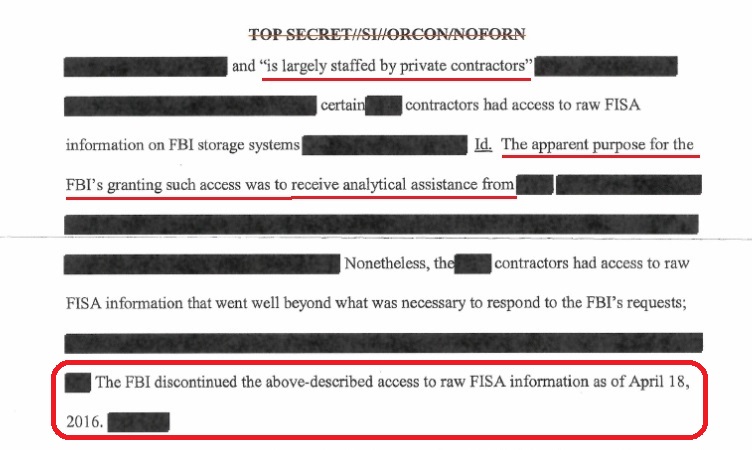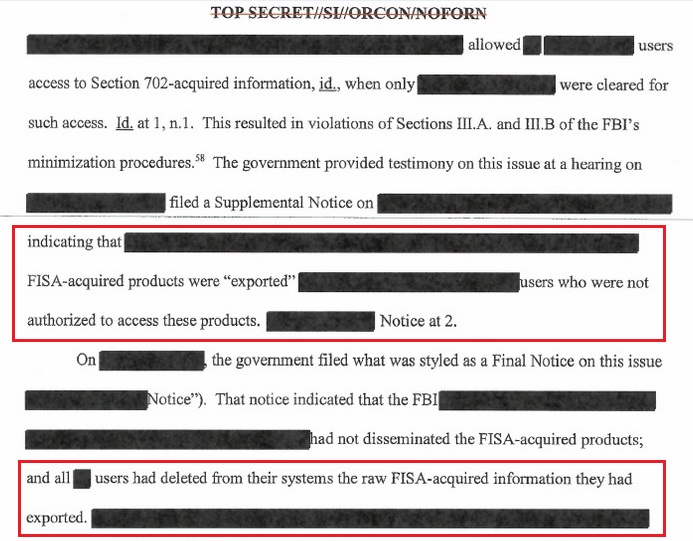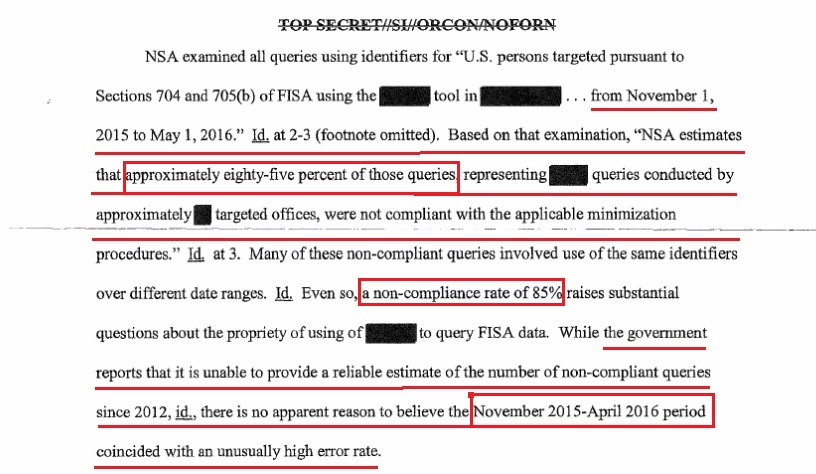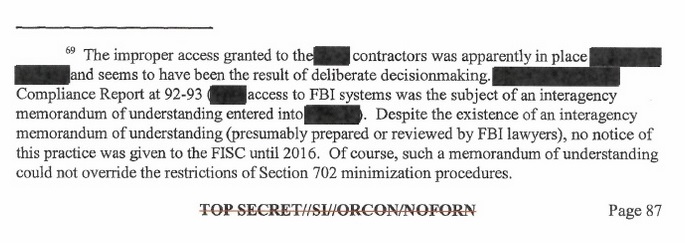There’s an interesting aspect to an Andrew Weissmann statement on MSNBC that almost everyone is missing. Before watching the brief excerpt, let me put the comments into context. Remember, the Intelligence Branch uses intelligence silos to protect themselves; however, the Intelligence Branch also violates those silos when ever they want.
 First, Andrew Weissmann comes from the DOJ-National Security Division (DOJ-NSD). More specifically, in that division Andrew Weissmann was in charge of the section that used FARA (Foreign Agent Registration Act), or FARA-951 as a weapon against their political enemies.
First, Andrew Weissmann comes from the DOJ-National Security Division (DOJ-NSD). More specifically, in that division Andrew Weissmann was in charge of the section that used FARA (Foreign Agent Registration Act), or FARA-951 as a weapon against their political enemies.
The only targets Weissmann ever selected for FARA investigations were political opposition. You might also remember it was Weissmann who led the Mueller team, and in that position Weissmann went after every target (Flynn, Rafiekian, Manafort, Papadopoulos, Phares, even Rudy Guiliani etc.) with accusations of FARA violations.
Second, the DOJ-NSD had no inspector general oversight.
During the Obama administration the DOJ-NSD exempted themselves from DOJ Inspector General review. In 2015 the Office of the Inspect General (OIG) requested oversight and it was Deputy AG Sally Yates who responded with a lengthy 58-page legal explanation saying, essentially, ‘nope – not allowed.’ (PDF HERE) All of the DOJ is subject to oversight, except the NSD.
There is a very specific reason for this intentional avoidance of oversight as we found out through the Carter Page FISA warrant. The DOJ-NSD is the weaponized mechanism against domestic political opposition inside the DOJ. [Sidebar: I would not be surprised to find out the DOJ-NSD operatives used their FARA authorities to control and threaten political opposition around Washington DC, using lobbying investigations as leverage/blackmail.]
As the current story is told a whistleblower in the intelligence community told Tucker Carlson his communication was intercepted by the NSA. By the NSA originating standard, the same standard they claim to uphold publicly, the NSA has a foreign intelligence mission; and their data collection is supposed to be in a silo related to foreign intelligence gathering. If an American is picked up ‘incidentally‘ by the NSA collection, that information is supposed to remain inside that silo.
However, as you watch this MSNBC segment, notice how casually Andrew Weissmann says that Tucker Carlson should have gone to the DOJ (Main Justice) with any concerns about his communication being intercepted by the NSA. Listen carefully to how Weissmann frames what Carlson “should have done” (prompted):
We have talked about this quite a bit and I’m sure you can see why this explanation from Weissmann is problematic, yet at the same time it highlights his reference point.
Why would Tucker Carlson go to the DOJ?
Why would the DOJ have access to an ‘incidental‘ NSA intercept of Tucker Carlson?
The NSA has a foreign intelligence mission (silo), and the DOJ has a domestic federal law enforcement mission (silo).
Why would Tucker Carlson go to the DOJ to inquire about an incidental intercept, and/or unmasking of that intercept, when the person who informed Carlson said nothing about the DOJ…. exposing only that the NSA had intercepted his electronic communication?
Why would the DOJ have access to that NSA intercept?
Where exactly is this bridge between the NSA intercepts and the DOJ review of these intercepts?
Who operates the bridge between the NSA database and the DOJ?
What legal authorities guide the DOJ having random access to the NSA database?…
… and How exactly did the DOJ gain the legal authority that Andrew Weissmann is describing Carlson should inquire about?
In essence, what this segment reveals is Andrew Weissmann being so comfortable and casual with his reference point from time and experience inside the DOJ-NSD, that he doesn’t even realize what he is saying so matter-of-factly is something that is not supposed to take place.
The DOJ (or DOJ-NSD) is not supposed to have simple access to the NSA database without a reason for it. Or without a contact from the NSA with a directive to review an intercept because it might involve unlawful activity.
The DOJ-NSD personnel are not supposed to be randomly data-mining the NSA database just to see if they can find some issue they would be under the authority to investigate. Yet this frame of reference is exactly the casual nature of Weissmann’s diatribe.
If the NSA database is so easily searched by any domestic law enforcement agency, FBI or DOJ, then what exactly is the difference between the DOJ sucking up all the communication of Americans (brutally obvious 4th amendment violations) and the NSA capturing it? Under the process Weissmann seems so casual about, the DOJ apparently has full unlimited access to everything the NSA captures.
This is not supposed to be happening. However, that is also likely why the DOJ-NSD under President Obama refused to have any oversight. That’s why I said Andrew Weissmann is saying the quiet part out loud.
Yes, I know there is ample evidence for this random domestic data-mining process I have just stated. As we have seen from reports summarized by the FISA court, this random searching of the NSA database is apparently commonplace.




Just because we know the DOJ and FBI exploit an unlawful process for unfettered access to the electronic communication of every single American, doesn’t mean we should just sit back and accept it.
